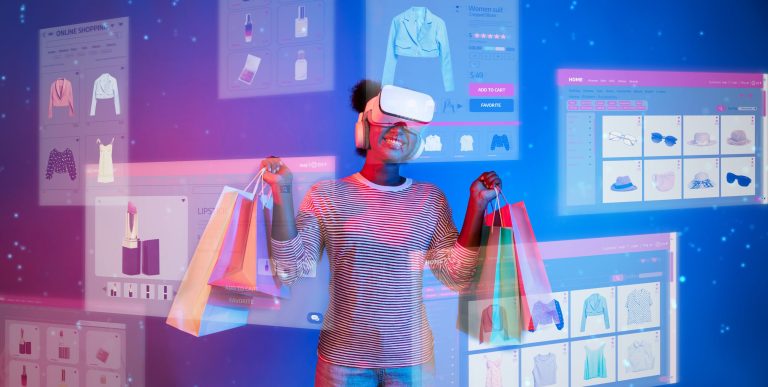Artificial intelligence (AI) is rapidly transforming the retail landscape, and shopping malls worldwide are embracing this change. From smart inventory management to personalized shopper experiences and advanced security systems, AI is revolutionizing how malls operate, attract foot traffic, and drive sales. This article explores how AI is transforming shopping malls globally, highlighting the technologies, use cases, and future outlook.
1. AI-Powered Personalization
Modern shoppers expect tailored experiences. AI helps malls and retailers deliver these by analyzing customer behavior, purchase history, and preferences. Malls use AI-driven tools to offer:
- Personalized deals through mall apps
- Real-time product recommendations
- Adaptive digital signage based on audience demographics
Example: Malls in Dubai and Singapore use facial recognition and heat maps to track shopper engagement and offer on-the-spot promotions.
2. Smart Inventory and Shelf Management
Retailers in malls face challenges in managing stock efficiently. AI-based systems now use:
- Computer vision to detect low stock or misplaced items
- IoT sensors to monitor shelf activity in real time
- Predictive analytics to optimize restocking schedules
This improves product availability and minimizes lost sales opportunities.
3. Virtual Shopping Assistants and Chatbots
AI-driven virtual assistants help customers find products, navigate malls, and even make purchases via mall apps or kiosks. Key benefits include:
- 24/7 support
- Multilingual interfaces for global malls
- Reducing human staffing needs
Example: Westfield malls in the UK and Australia use AI assistants to guide shoppers to stores and recommend deals.
4. Smart Parking and Navigation
Finding parking in large malls can be frustrating. AI optimizes:
- Smart parking allocation via license plate recognition
- Real-time occupancy updates on mall apps
- Indoor navigation systems using AR + AI mapping
This improves customer satisfaction and encourages repeat visits.
5. Enhanced Security with AI Surveillance
Security is critical in large malls. AI helps through:
- Facial recognition to flag known threats
- Predictive behavioral analysis to detect suspicious activity
- Real-time alerts to mall security teams
AI tools reduce theft, vandalism, and improve incident response times.
6. AI-Powered Energy and Facility Management
Large malls consume massive amounts of energy. AI helps reduce costs and carbon footprints through:
- Predictive HVAC systems
- Smart lighting based on foot traffic
- Automated cleaning robots that adapt to crowds
These technologies enhance sustainability and operational efficiency.
7. Dynamic Pricing and Promotions
AI allows retailers to adjust prices in real time based on demand, weather, time of day, or inventory levels. This includes:
- Flash discounts to clear slow-moving stock
- Hyper-targeted promotions based on customer profile
- Geo-fenced offers when a shopper enters a specific area
This boosts conversion rates and encourages impulse buying.
8. Augmented Reality (AR) Shopping Experiences
AI + AR is reshaping how people shop in malls. Some examples:
- Virtual fitting rooms using body scanning
- AR product demos at interactive kiosks
- Storefront displays that change with user proximity
These futuristic experiences increase engagement and reduce return rates.
9. Predictive Analytics for Tenant Leasing
Mall owners use AI to determine which tenants will thrive in specific locations based on:
- Historical foot traffic
- Customer demographics
- Category performance trends
This helps create strategic tenant mixes that maximize revenue per square meter.
10. AI in Marketing and Mall Management
AI enables automated, data-driven mall marketing, such as:
- Targeted email and SMS campaigns based on behavior
- Performance tracking for mall-wide events
- Insights on shopper flow and engagement per zone
This leads to more effective budget allocation and campaign ROI.
AI Integration Examples from Global Malls
| Mall Name | Country | AI Feature Highlight | Impact |
|---|---|---|---|
| Mall of America | USA | Heat mapping + behavioral tracking | Increased conversion by 15% |
| Dubai Mall | UAE | Smart concierge + facial recognition offers | Improved customer satisfaction and loyalty |
| Siam Paragon | Thailand | Real-time inventory + AR fitting rooms | Enhanced retail experience |
| Westfield London | UK | Virtual assistants + smart parking | Reduced wait times, higher foot traffic |
| SM Megamall | Philippines | Smart energy management + chatbot assistance | Lowered energy cost by 22% |
What’s Next for AI in Shopping Malls?
As AI technology matures, expect malls to adopt:
- Digital twins for real-time mall simulations
- Emotion-sensing AI for more nuanced personalization
- Autonomous delivery bots for in-mall pickups
The AI revolution in retail is just beginning. Future malls will feel more like smart cities than traditional commercial spaces.
Conclusion
AI is not just a buzzword—it’s the backbone of modern retail transformation. From improved shopper experiences to smarter back-end operations, AI is reshaping the shopping mall experience worldwide. As malls compete for attention in the digital age, those that embrace AI early will dominate the future of global retail.

